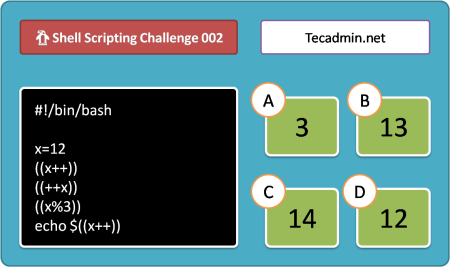Bash, or the Bourne-Again SHell, is a powerful and versatile scripting language widely used in the Linux and Unix environments. One of the key features of Bash scripts is the ability to create conditions and control the flow of execution using logical operators. In this article, we’ll take a deep dive into the world of logical operators in Bash and explore how to use them effectively with detailed examples.
Table of Contents
- Understanding Logical Operators in Bash
- Types of Logical Operators in Bash
- AND Operator
- OR Operator
- NOT Operator
- Using Logical Operators in Bash Scripting
- Combining Conditions with Logical Operators
- Logical Operators in if-else Statements
- Practical Examples of Logical Operators in Bash
- Conclusion
Understanding Logical Operators in Bash
Logical operators in Bash are used to test conditions and create complex expressions by combining two or more conditions. These operators allow you to evaluate the truthiness of a condition or multiple conditions, providing a way to control the flow of execution in your scripts. The three most common logical operators in Bash are:
- AND (&& or -a)
- OR (|| or -o)
- NOT (!)
Types of Logical Operators in Bash
1. AND Operator:
The AND operator (&& or -a) is used to combine two conditions in a way that the overall expression is true only if both conditions are true. The syntax for the AND operator is:
1 | condition1 && condition2 |
2. OR Operator:
The OR operator (|| or -o) is used to combine two conditions in a way that the overall expression is true if at least one of the conditions is true. The syntax for the OR operator is:
1 | condition1 || condition2 |
3. NOT Operator:
The NOT operator (!) inverts the truthiness of a given condition. If the condition is true, the NOT operator returns false, and vice versa. The syntax for the NOT operator is:
1 | !condition |
Using Logical Operators in Bash Scripting
1. Combining Conditions with Logical Operators:
You can create complex expressions by combining conditions using logical operators. Here’s an example:
1 2 3 4 | age=25 name="John" [[ $age -gt 18 && $name == "John" ]] && echo "John is older than 18." |
2. Logical Operators in if-else Statements:
Logical operators can be used in if-else statements to create complex conditions. For example:
1 2 3 4 5 6 | age=25 name="John" if [[ $age -gt 18 && $name == "John" ]]; then echo "John is older than 18." fi |
Practical Examples of Logical Operators in Bash
Example 1: Check if a number is within a specific range
1 2 3 4 5 6 7 | number=15 if [[ $number -gt 10 && $number -lt 20 ]]; then echo "The number is between 10 and 20." else echo "The number is outside the range of 10-20." fi |
Example 2: Check if a user is either “root” or “admin”
1 2 3 4 5 6 7 | user="admin" if [[ $user == "root" || $user == "admin" ]]; then echo "The user is either root or admin." else echo "The user is neither root nor admin." fi |
Example 3: Invert a condition using the NOT operator
1 2 3 4 5 6 7 | filename="example.txt" if [[ ! -e $filename ]];then echo "The file does not exist." else echo "The file exists." fi |
Example 4: Combining multiple logical operators in a single condition
1 2 3 4 5 6 7 8 | number=30 user="admin" if [[ $number -ge 10 && $number -le 50 && ( $user == "root" || $user == "admin" ) ]]; then echo "The number is between 10 and 50, and the user is either root or admin." else echo "Either the number is not between 10 and 50, or the user is neither root nor admin." fi |
Conclusion
Logical operators in Bash are powerful tools that allow you to create complex conditions and control the flow of your scripts more effectively. Understanding how to use AND, OR, and NOT operators, and combining them with other Bash features like if-else statements, can help you write more efficient and flexible scripts. By practicing with the examples provided in this article, you’ll be well on your way to mastering logical operators in Bash.
